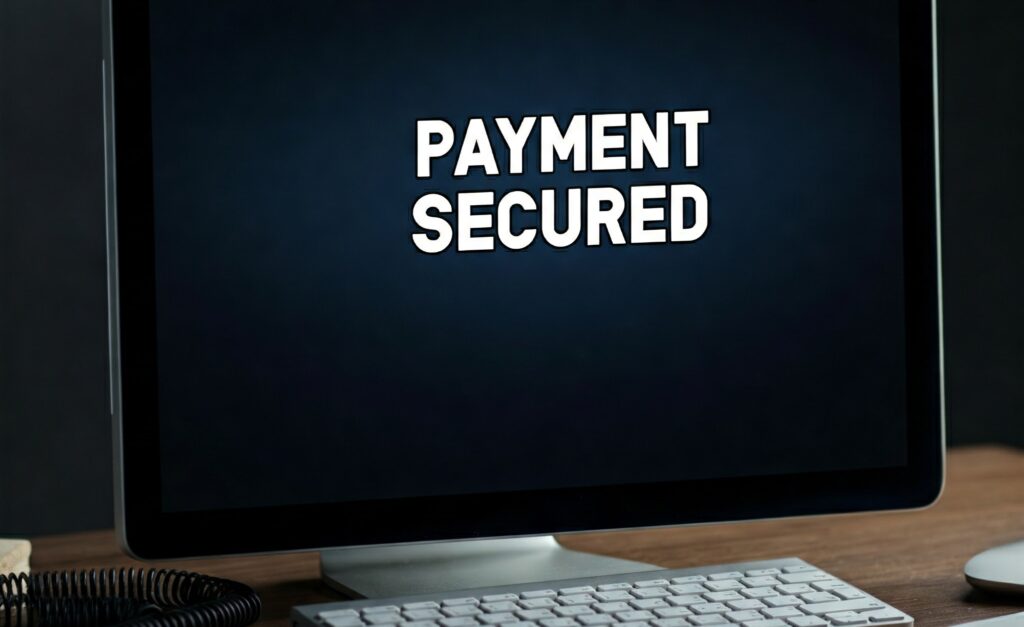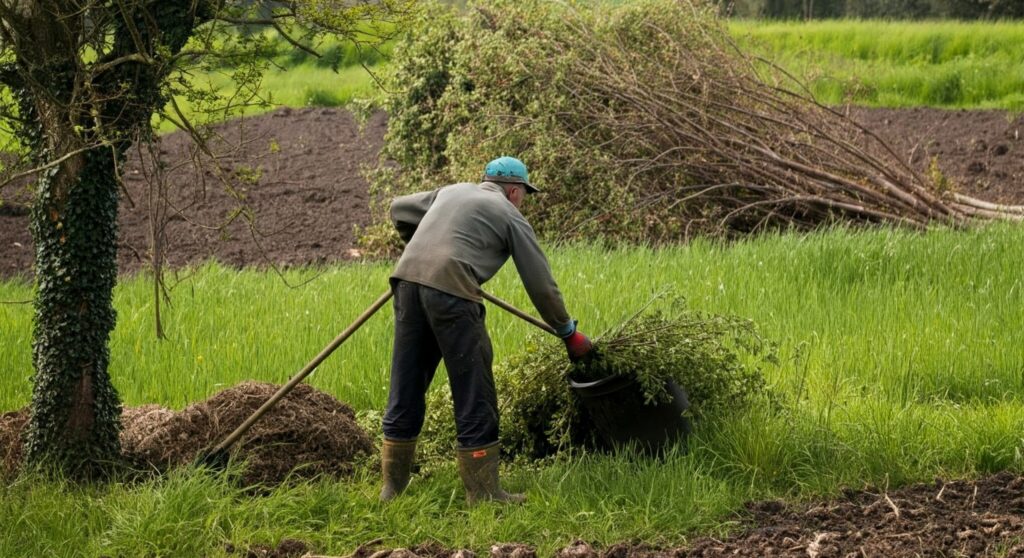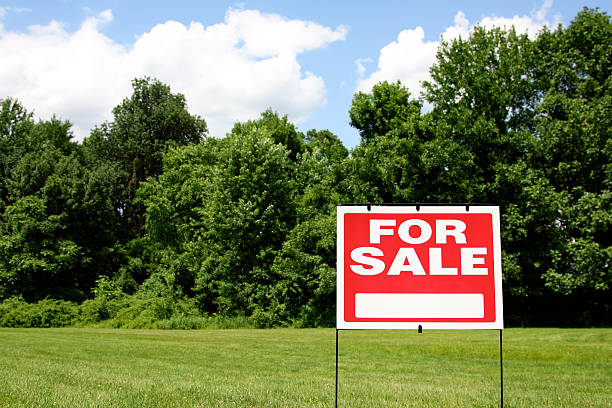
Selling Land Out of State: You Step-by-Step Guide To Avoid Scams and Sell For Top Dollar
Table of Contents
- Introduction
- Land Scams on the Rise: Protecting Yourself From Scammers
- How to Avoid Scams and Ensure Payment Security When Selling Land
- Ready, Set, Sell!
- Listing Your Land: Finding the Right Buyer
- The Fast Track to Selling Your Land: Selling to a Land Investor
- The Closing Stretch: Sealing the Deal from Out-of-state
- Conclusion
Selling land can be tricky, especially when it’s miles away. Inherited a piece of land in another state? Maybe you’ve relocated and need to sell that acreage you left behind? Don’t worry, we’ve got you covered! This guide is your roadmap to navigating the unique challenges and exciting opportunities of selling land from afar.

Land Scams on the Rise: Protecting Yourself From Scammers
The real estate world has gone digital. In 2022, 13% of all real estate transactions were conducted remotely, according to the National Association of REALTORS®. While the convenience of selling property from miles away is undeniable, it also opens the door to new risks—especially for vacant landowners.
The Growing Threat of Real Estate Scams
Unfortunately, vacant land owned by absentee owners has become a prime target for scammers. These fraudsters employ increasingly sophisticated tactics to deceive buyers, sellers, and even real estate professionals. Charlie Lee, senior counsel at the National Association of REALTORS®, highlights the growing threat of vacant land scams in his “Window to the Law” video series.
The Risk in Numbers
The risks aren’t just anecdotal—they’re backed by hard numbers:
- The FBI’s Internet Crime Complaint Center (IC3) reported a surge in real estate and rental scams, with losses exceeding $730 million in 2022. (Source: FBI IC3 Report 2022)
- CertifID found that 1 in 10 Americans are targets of real estate fraud, and 1 in 20 suffer losses as a result. (Source: CertifID’s 2024 State of Wire Fraud Report)
While selling from far away is convenient, it also makes it easier for scammers to take advantage. Out-of-state sellers are often less likely to visit the property or meet with potential buyers in person, making it easier for fraudsters to exploit the situation. With 95% of buyers using online tools to search for properties (Source: NAR), it’s tempting to rely solely on virtual tours and online communication when selling remotely.
For example, a 2023 report by the National Association of Realtors found that properties sold without the seller being physically present were 30% more likely to be involved in a fraudulent transaction.
Common scams include:
- Fake Listings – Scammers create fraudulent listings for land they don’t own, often using stolen photos and information.
- Title Fraud – Scammers forge documents to claim ownership of land and then attempt to sell it to unsuspecting buyers.
- Bait-and-Switch – Scammers advertise land at a low price to lure in buyers, then switch to a less desirable property or demand a higher price at closing.
Therefore, it’s crucial for remote sellers to take extra precautions to protect themselves, such as working with reputable professionals, verifying the buyer’s identity, and ensuring a secure closing process.
How to Avoid Scams and Ensure Payment Security When Selling Land

Okay, let’s talk about the part everyone’s interested in: getting paid! When you’re selling land from afar, you want to make sure that money lands safely in your account without any issues. Here’s the game plan:
- Working With Title Company – Think of your real estate attorney or title agent as your licensed fiduciary in the process of selling your property. They’ll help you navigate the process, make sure the paperwork is in good order, and ensure the buyer is who they say they are. They’ll also be your guides to getting paid securely and on time once the deal goes through.
A study by the National Association of Realtors found that 87% of sellers used a real estate agent in their transactions – and for good reason! Agents bring expertise in negotiation, marketing, and legal compliance, which is especially valuable when you’re not physically present. (Source: National Association of REALTORS®) - Vetting Your Buyer – Don’t be afraid to ask for proof of funds from the buyer who wants to buy your land, and maybe even do a little digging online to make sure they’re legit. It’s always better to be safe than sorry.
- Closing with Confidence – The closing process can feel like a bit of a nail-biter, but with the right team, you can relax. Use a title company or escrow agent – they’re like the referees of the real estate world. They’ll hold the buyer’s money safe until all the i’s are dotted and t’s are crossed, ensuring a smooth and secure transaction for everyone.
- Keep It Simple – When it comes to payment, stick to the tried and true methods. Be wary of requests for weird payment methods, like wiring money to some far-off land or dealing with cryptocurrency. Those can be red flags for scammers. Stick to cashier’s checks or wire transfers to real, verified bank accounts.
- Document Everything – Think of it like creating a treasure map to your land sale. Keep a record of all your conversations, agreements, and money matters. This can be a lifesaver if any disputes or problems come up later on.
By following these tips, you can navigate the out-of-state land sale with confidence, knowing that you’re protected from scams and on your way to a successful and secure payday!
We are very pleased with the fair offer we received from Acrewell Land Company for our land. Alexander Reese and Marilag walked us through all aspect of the selling process, which made us feel more comfortable that we were making the right choice. I fully recommend this company to anyone who is considering selling their property to Acrewell.
I am absolutely delighted to write a glowing review for Acrewell's recent land purchase from us. The entire experience of transitioning the land ownership was incredibly smooth and efficient, thanks to Acrewell's exceptional professionalism and clear communication throughout the process.
Acrewell is awesome! I love the weekly updates. Marilag was very professional. She genuinely cared that my needs were met and questions answered. This has been a very easy transition. I highly recommend Acrewell.
Ready, Set, Sell!
Even though you’re miles away, it never hurts to give your land some TLC and make it shine for potential buyers. Here’s how to get your property ready for its close-up:
- Clean It Up – Imagine your land is about to be featured in a magazine. Would you want it to look like a wild, overgrown mess? Nope! Get a local helper to clear away any trash, trim those unruly bushes, and mow that knee-high grass. A little sprucing up can make a world of difference. In fact, a 2022 survey by the National Association of Landscape Professionals found that landscaping can increase property values by up to 12%. (Source: NALP)
- Easy Access – Imagine you’re a potential buyer driving up to your land for the first time. Make sure the access is easy and welcoming. If there are any restrictions or special rules about accessing the property, make sure those are clearly explained upfront.
- Showcase the Potential – Help potential buyers envision the possibilities! If your land is suitable for building, consider marking potential building sites or highlighting any existing features that add value, such as mature trees, scenic views, or access to water.
By taking these simple steps, you can make your land more attractive to buyers, even if you can’t be there to give it a personal touch. Remember, first impressions matter, and a well-maintained property shows that you care and that your land is worth investing in.

Finding the Right Buyer
Now it’s time to market your land and find that perfect buyer. Here are a few paths you can take:
Team Up with a Local Agent – A real estate agent who knows the local land market is like a treasure hunter – they can help you find those hidden gems and connect you with the right buyers. They can also help you set a competitive price, market your land effectively, and negotiate like a pro. According to the National Association of Realtors, 90% of buyers use a real estate agent, and 87% of sellers do. (Source: National Association of REALTORS®).
Selling to an Investor –If you’re looking for a quick and easy sale, consider selling to a land investor. They often pay cash and can close the deal quickly, which can be a huge relief when you’re dealing with a property from afar.

The Fast Track to Selling Your Land: Selling to a Land Investor
Sometimes the traditional route of selling land can feel like a marathon. Listing, showings, negotiations… it can be a lot, especially when you’re dealing with a property in another state. But what if there was a faster, simpler way to reach the finish line?
Enter land investors! These savvy buyers are often looking for properties just like yours, and they can offer a hassle-free alternative to the traditional selling process.
Here’s why selling to a land investor might be your perfect shortcut:
- Swift Closings – Land investors are all about efficiency. They can often close deals much faster than traditional buyers, sometimes in a matter of weeks. This is a huge plus if you need to sell your land quickly, whether it’s due to relocation, financial needs, or just wanting to check it off your to-do list.
- Cash is King – Many land investors make cash offers, which means no waiting around for loan approvals or worrying about financing falling through. It’s a straightforward, no-nonsense approach that can give you peace of mind and a quicker closing.
- Skip the Showings – Say “goodbye” to the hassle of staging your land, scheduling showings, and dealing with picky buyers. Land investors typically purchase properties as-is, so you can skip the marketing frenzy and avoid the stress of open houses and negotiations.
- Stress-Free Zone – Selling to an investor can take a lot of the weight off your shoulders. They handle most of the details, allowing you to sell your land from afar with ease. It’s like having a personal land-selling concierge!

Is Selling to an Investor Right for You?
This option might be your perfect match if:
- You need to sell your land quickly.
- You prefer a hassle-free transaction with minimal involvement.
- You’re comfortable with a potentially lower offer price in exchange for speed and convenience.
- The land is raw, undeveloped, or has unique characteristics that might not appeal to traditional buyers.
How to Find Reputable Land Investors:
- Online Search – Search online for “land investors” or “we buy land” in the state where your property is located.
- Referrals – Ask your real estate agent or attorney for referrals to reputable land investors in the area.
- Acrewell – Of course, we’d be happy to discuss your property and see if it’s a good fit for our portfolio! Contact us for a no-obligation offer and learn more about how we can help you sell your land quickly and easily.

The Closing Stretch: Sealing the Deal from Out-of-state
Alright, you’ve found your buyer, negotiated the price, and you’re almost at the finish line! Closing the deal on your out-of-state land might seem a bit daunting, but don’t worry, it’s totally doable. Thanks to technology and some savvy strategies, you can make this process surprisingly smooth, even from miles away.
Here’s a glimpse of what to expect:
Legal and Title Teamwork
Your real estate attorney and the title company will be your partners in this final stage. Your attorney will review all the closing documents, making sure everything is legally sound and guiding you through the process. The title company will ensure the title to the land is clear and free of any issues, conduct a title search, issue title insurance, and handle the transfer of ownership from the seller to the buyer. Think of them as your dynamic duo, ensuring a secure and legally sound transaction.
A key part of this process is the escrow account. This will be the bank account managed by the real estate attorney or title company who is responsible for managing the transaction. Typically the buyer will select the escrow agent as part of their purchase agreement, but sellers are encouraged to work directly with the escrow agent or choose another title company to act on their behalf. These types of escrow agents are licensed at the state level, and so their role in managing the disbursement of the buyer’s funds to the seller is highly regulated to protect the interests of the respective parties.
Seller Documents and Notary Signatures
While much of the closing process can be handled digitally these days, there’s one crucial step that often requires your old-fashioned John Hancock: signing the deed. Here’s the breakdown:
- The Deed Packet – You’ll receive a packet of important documents from the title company or your attorney. This packet includes the new deed, which officially transfers ownership of the land to the buyer.
- Notary Public (with Remote Options) – To make that deed official, you’ll need to sign it in the presence of a notary public. This verifies your identity and ensures the signature is legitimate.
Now, here’s where it gets convenient: many states allow for remote online notarization (RON), where you can connect with a notary public online via video conference and sign the documents electronically. If RON isn’t available in your state or you prefer a more traditional approach, you can also find a mobile notary who will come to you, wherever you are. No need to hunt down a bank or shipping store! - Sending it Back – Once you’ve signed and had the deed notarized, you’ll send it back to the escrow agent. They’ll hold onto it until all the other closing conditions are met (like the buyer’s financing and inspections).
- The Deed Packet – You’ll receive a packet of important documents from the title company or your attorney. This packet includes the new deed, which officially transfers ownership of the land to the buyer.
- Disbursement of Funds – Once all the necessary steps are completed, including any inspections, appraisals, and title searches, the funds will be released from escrow and transferred to you, the seller. This is usually done through a wire transfer or cashier’s check to ensure a secure and traceable transaction.
- The Successful Sale – Once all the paperwork is signed, the funds are transferred, and the title is clear, congratulations! You’ve officially sold your out-of-state land. The title company will record the deed, and you can celebrate a successful transaction.
- Disbursement of Funds – Once all the necessary steps are completed, including any inspections, appraisals, and title searches, the funds will be released from escrow and transferred to you, the seller. This is usually done through a wire transfer or cashier’s check to ensure a secure and traceable transaction.

Conclusion
Selling land remotely doesn’t have to be daunting. By understanding the risks, preparing your property, and leveraging professional help, you can secure a profitable and stress-free sale.
At Acrewell, we’re here to help. Whether you’re looking for a quick sale or need guidance navigating the market, our team provides expert support every step of the way.
Contact Us Today to learn how we can make your land sale seamless and successful!

Connect With Us
Please fill out the form below and we’ll be in touch.
Table of Contents
- Introduction
- Land Scams on the Rise: Protecting Yourself From Scammers
- How to Avoid Scams and Ensure Payment Security When Selling Land
- Ready, Set, Sell!
- Listing Your Land: Finding the Right Buyer
- The Fast Track to Selling Your Land: Selling to a Land Investor
- The Closing Stretch: Sealing the Deal from Out-of-state
- Conclusion
Post Categories
Latest Posts

Claim Your Offer
Ready to sell your land today? Send us a message